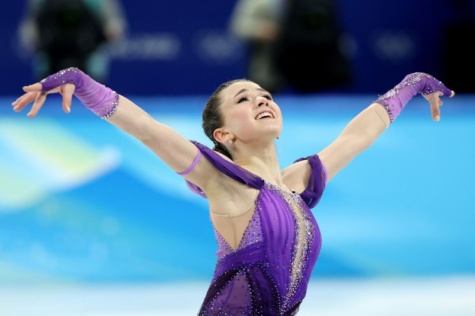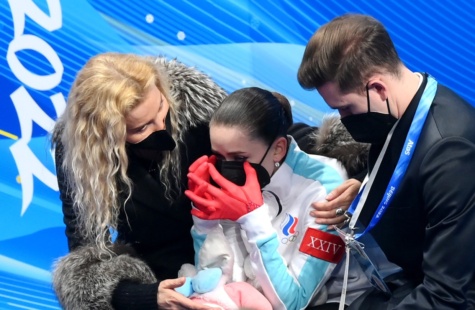
Brooklyn Staab | Opinion Editor & Publicity Manager
February 25, 2022
Kamila Valieva, a 15-year-old figure skater, tested positive for trimetazidine but was surprisingly still allowed to compete at this year’s Olympic games.
Trimetazidine is a performance-enhancing drug that allows for more airflow in the heart, giving the user better stamina — a short-term benefit. However, there are countless negative long-term effects for any drug use, especially at a young age like 15.
Drug scandals are no new controversy for the Olympics — they seem to happen all the time. Consequently, athletes are regularly disqualified from competing. So what sets Valieva apart from the rest of the Olympians?
Sha’Carri Richardson, a black American track and field athlete, was disqualified for testing positive for cannabis in the summer Olympics. The 21-year-old came forward and pointed out the visible double standard.
It was said that because of Valieva’s age, she is simply too young to receive adult punishment, raising questions such as: Should the Olympics punish and or investigate the coach? Should there be an age minimum requirement at the Olympics? Should all athletes be held to the same standards?
“There should be an age limit because children could be exploited and overworked when coaches use them for winning purposes in sports,” senior Kaitlyn Northrup said. “The pressure put on young athletes by parents and coaches can make a huge impact on their development and their age makes them too vulnerable to being taken advantage of.”

Competing at a high level in sports takes an extreme mental and physical toll on most athletes. Oftentimes, young athletes are also enduring the added stressor of emotional or mental abuse from their coaches, which creates an added stressor for the athletes.
Valieva is 15 and works in intense training situations, where she has little control over what she does. Presumably, she had no say, or awareness, of what she was taking. If she did, it is safe to say that she probably was pressured into it — not because Valieva is not intelligent, but because the Olympic standard is intense, abusive training centers where athletes have little control in general.
“The power dynamic between a coach and a student is often one-sided where the coach has all the power and the student follows blindly,” senior Kylie Hatfield said.
This isn’t the first time Eteri Tutberidze, Valieva’s coach, has been accused of doping her students, but this is the first the abuse has been legitimized. An investigation is on the way.
Valieva was in line for the gold medal when she received the highest score for the Women Single Skating Short Program Team Event, though she fell multiple times during her final Olympic performance and came out in fourth.
“Why did you stop fighting?” were the words of her coach as soon as she came off the rink. Tomas Bach, president of the International Olympic Committee and a witness of the coaches’ treatment, describes the interactions as “chilling” and “disturbing.”
What sparked most public interest was the photos of Valieva in tears and being visibly upset with her coaches after receiving fourth.
The World Anti-doping Agency will be now investigating Valieva’s experience. Hopefully, the young woman will receive justice for these events.

Leave a Reply